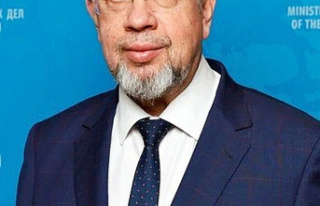One of the 35 documents that constitute the bases of Yolanda Díaz's country project is focused on illuminating a "new territorial model." Its fundamental essence is the "recognition" of the "national plurality" of Spain and to reconcile that condition with "an integrating idea of nation."
«This federal vision, on the one hand, considers the national community dimension essential as a shared link, the necessary foundation of 'us and us'. That is why it can share positions and build bridges with sovereignist formulations or other alternatives of a progressive nature, ”explains Sumar's text.
The promoters of the document, headed by Professor Ramón Máiz, enter into one of the hottest issues of the last decade due to the challenge for independence in Catalonia, but they do so carefully, avoiding for the moment ruling on a self-determination referendum. The text says nothing about opening legal mechanisms to facilitate a consultation agreed with the Government on the independence of an autonomy, which has been a concept defended by Podemos and, very singularly, by the commons, which are a key part of Sumar. That thorny issue is left on the edge for now.
"The pact that we propose goes beyond autonomism and postulates a very demanding synthesis of self-government and shared government," sums up Sumar's text on the background that he is proposing.
This "new territorial contract" would have a "federal character" and would make it possible to articulate "at different rates the" necessary changes that facilitate a harmonious fit of the legitimate claims around the processes of reform of the autonomous statutes.
The objective is "to put aside the noise and useless confrontation and dedicate ourselves to what matters", says the text, which emphasizes that it is "to develop a welfare federalism" that involves "all institutions and levels of government in the improvement of people's lives."
The most concrete proposals have to do with the idea of “shared government”. Thus, the "participation" of the autonomous communities in the institutions of the European Union or other international organizations is advocated to deal with matters in which they have competence. Or give them a role in the election of State institutions such as, the text cites, the General Council of the Judiciary (CGPJ), the Court of Accounts or others.
Likewise, it is committed to providing structure, regularity and “decision-making capacity” to the conference of presidents. There is also a more classic demand to reinvent the Senate to turn it into a territorial chamber.
Much emphasis is placed on linguistic plurality. "It is not limited to the communities that have their own language," he warns, "it is the whole of Spain and its institutions." For this reason, an "effective co-official status" is claimed, which is embodied in a "multilingual State": use in institutions, official acts, cultural production, the media or the educational system.
According to the criteria of The Trust Project












